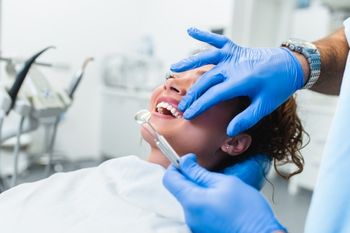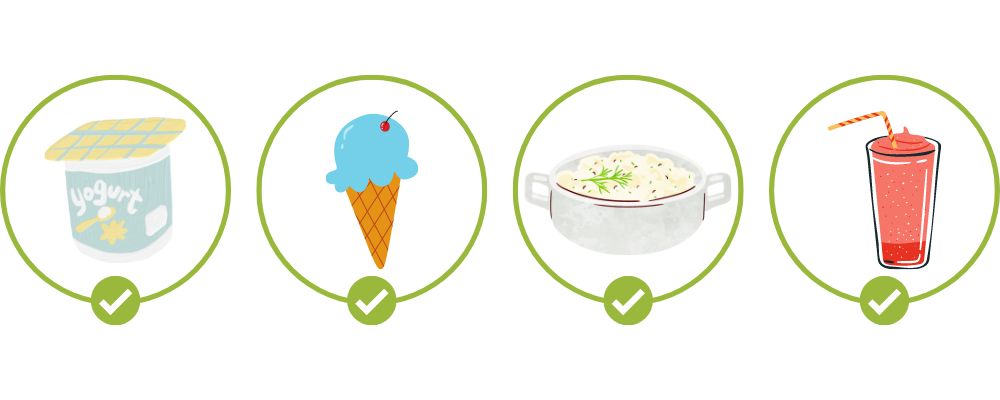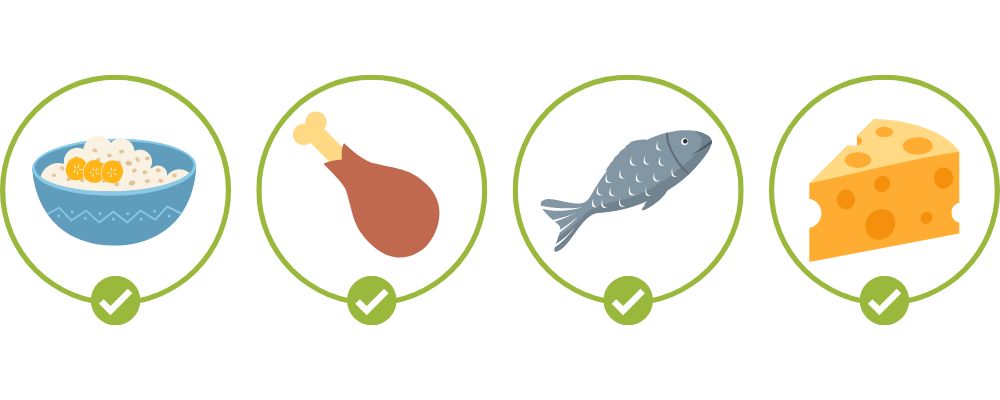
What Can I Eat After Dental Implant Surgery
Getting a dental implant can transform your smile, but the journey to recovery requires careful attention, especially to your diet. Our expert tips can help you ensure a smooth healing process.
After having a dental implant fitted, your teeth and jaw will be in a very delicate state, which is why it’s important to follow a carefully planned diet during the first days and even weeks of the healing process.
Eating food your implant isn’t ready for can damage the implant itself and set back your recovery.
The First 24-48 Hours After Dental Implant Surgery
In all stages of the healing process, it’s important to remember protein, which supports the formation of new tissue and helps the body fight infection. Your ideal diet after implants should consist of:
- Soft Foods and Liquids: Soup, ice cream, mashed potatoes, smoothies, protein-rich yoghurts.
- Protein-packed Smoothies: Blend vitamins, minerals, and add protein powder, avocado, or peanut butter. Avoid using a straw to prevent pressure on your new implant.
- Cold Foods Only: To protect your implant, consume only cold foods and drinks.
In this early, highly tender stage, you should only consume soft food and liquids. To ensure you’re eating a healthy diet, pack a smoothie with vitamins, minerals, and other nutrients. If you want to up your protein intake, try adding protein powder, avocado, or peanut butter.
Because they can be tailored to your needs, smoothies are the optimal post-surgery food but don’t use a straw, as suction will put pressure on your newly implanted tooth.
It’s essential that everything you eat or drink is cold, to avoid damaging the new implant.

Day 3 – 7 After Dental Implant Surgery
At this stage, you can begin to add some slightly firmer foods to your diet, all of which should still be relatively soft:
- Soft Foods: Scrambled eggs, omelettes, soft cheeses, well-cooked pasta.
- Soft Meats and Fruits: Chicken, fish, peaches, pears. Avoid crunchy fruits unless blended.
- Soft Cereals: Oatmeal and muesli are ideal for breakfast.
- Soft Vegetables: Boil or steam vegetables until soft.

Week 2 Through to Full Healing
Healing can take several weeks after getting a dental implant, so it’s important to be careful and consider the introduction of harder food. Pay attention to your mouth – if eating something hurts, you’re not ready for it.
As you reintroduce old favourites, bear in mind that changes to an ongoing diet might be a good idea, especially if you’re keen on hard, crunchy, or chewy foods. To protect the dental implant over the long term, it might be worth bumping the most difficult-to-chew menu items off the list.
You can also check out one of our more in-depth blogs about dental implants to help further your decision in getting them done.
Contact our friendly staff at our Bolton clinic today and our friendly staff will be delighted to help you.







